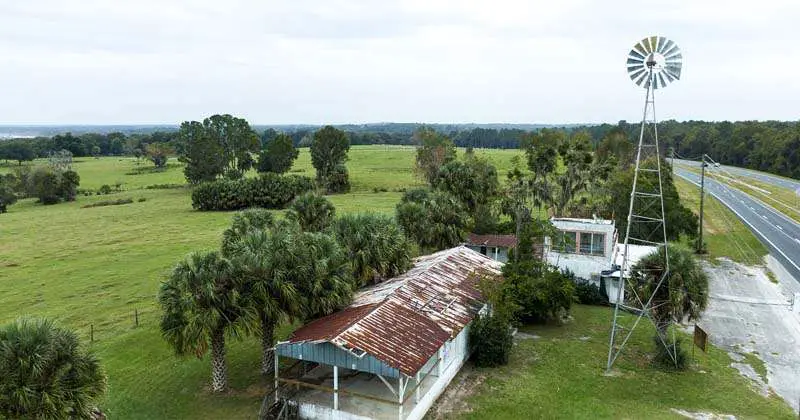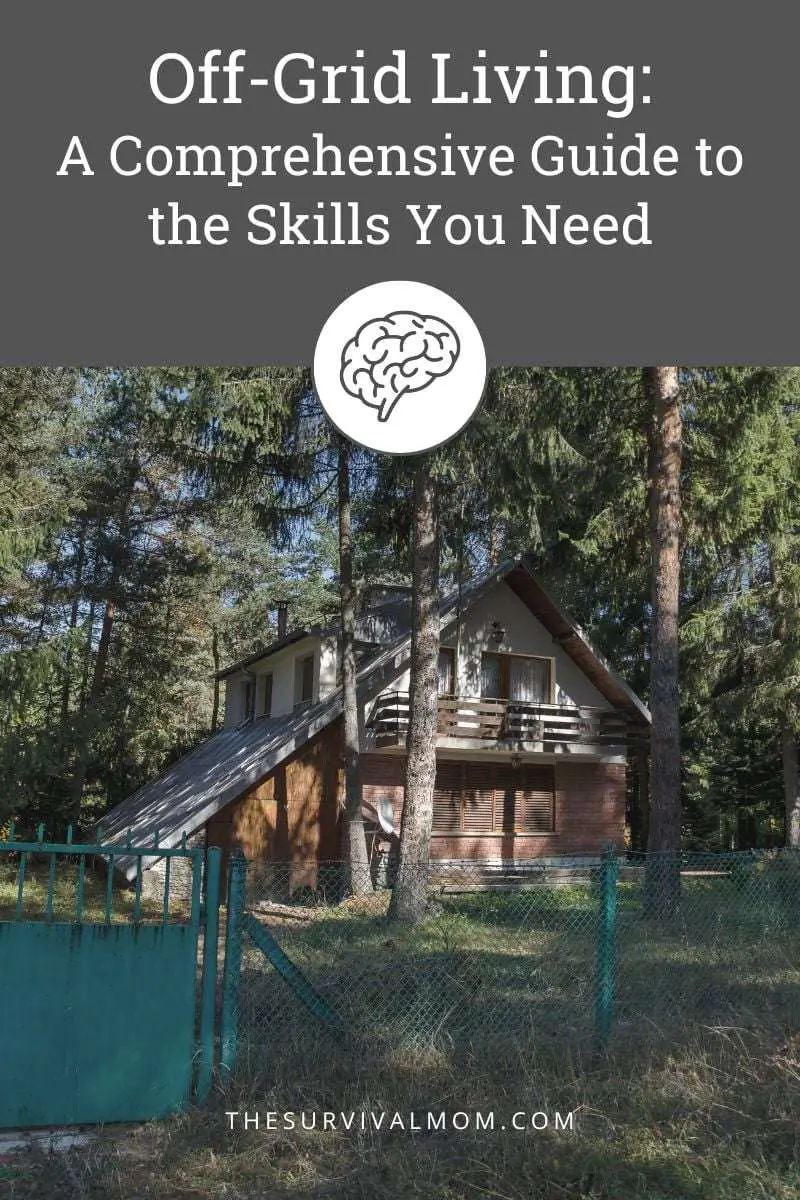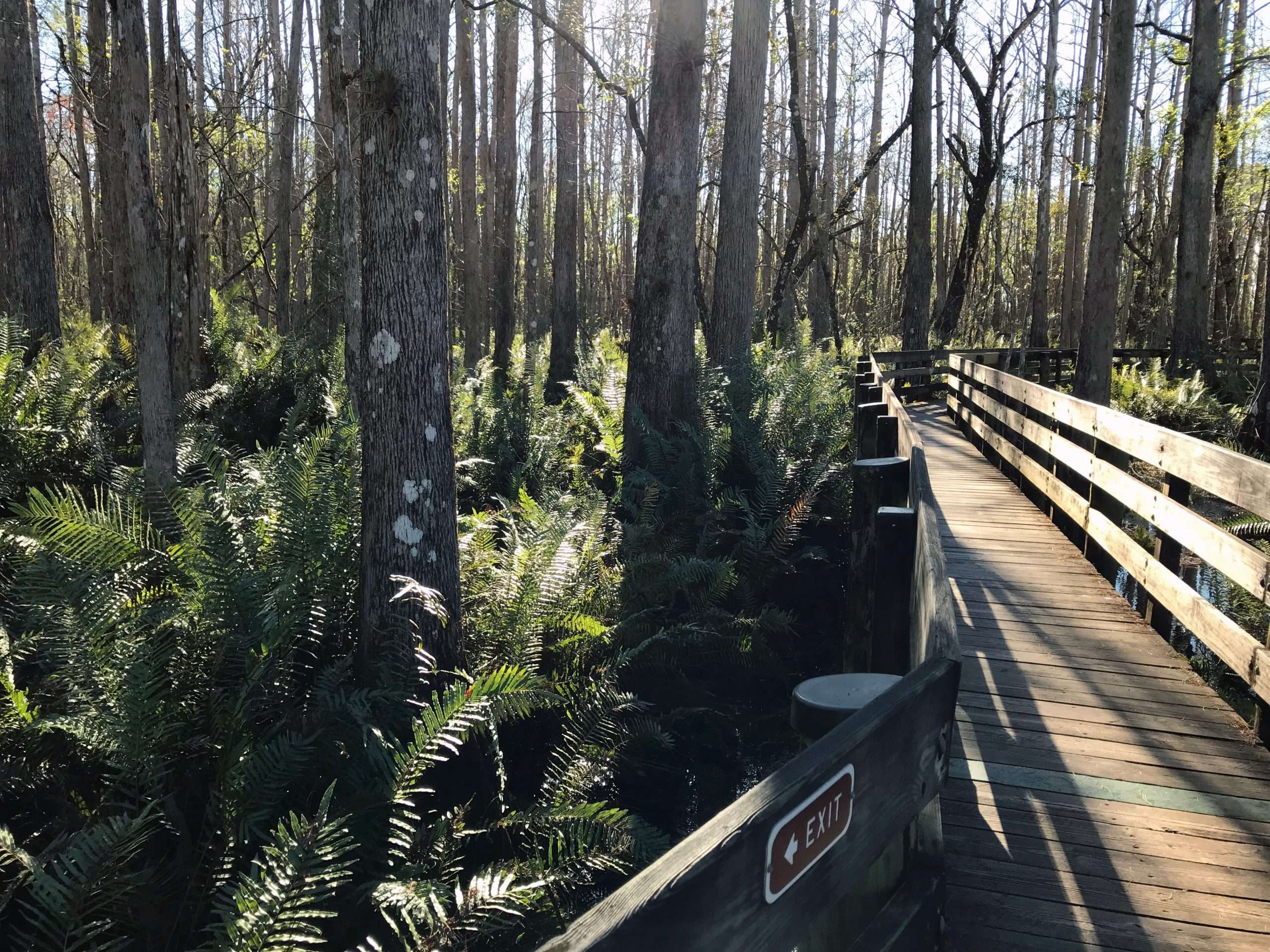Thinking about embracing off-grid living in Florida? Well, it’s definitely a unique challenge compared to other states. With a population of around 21 million and a high tourism rate, finding the perfect spot to disconnect from the grid may not be easy. Florida’s humid subtropical climate can be both a blessing and a curse when it comes to cultivating crops. And while solar power is a viable option, access to freshwater may prove to be a challenge. Still, if you can navigate the hurdles, Florida offers diverse wildlife, relatively good road access, and job opportunities in various industries. Just be prepared for the higher cost of living, the occasional natural disaster, and the need to comply with local laws and regulations. With careful planning, off-grid living in the Sunshine State can be both feasible and rewarding.

Challenges of Off-Grid Living in Florida
Population Density and Tourism
One of the major challenges of off-grid living in Florida is the high population density and tourism. With a population of around 21 million, Florida is one of the most populous states in the United States. This means that finding remote, secluded areas suitable for off-grid living can be a difficult task. The state is filled with numerous cities and urban areas, with many of them having populations of over 100,000 residents. This high population density leads to limited available land for off-grid living and increased competition for resources.
Furthermore, Florida is a popular retirement state and a major tourist destination, attracting millions of visitors each year. The influx of tourists during peak seasons can strain the resources and infrastructure of the state, making it challenging for off-grid communities to maintain their self-sufficiency. Additionally, the increased tourism can lead to higher land prices and restrictions on land use, further limiting the options for off-grid living in Florida.
High Humidity and Black Mold
While Florida’s climate is favorable for growing crops, it can also create challenges for off-grid living. The state has a humid subtropical climate, which means that it experiences high humidity year-round. This high humidity can lead to the growth of black mold, a common issue in many homes in Florida. Black mold not only poses health risks but also requires constant vigilance and maintenance to prevent its spread.
Off-grid dwellings, especially those in remote areas, may face additional challenges in dealing with black mold due to limited access to resources and professionals who can help with mold remediation. This highlights the importance of proper ventilation and mold prevention strategies when planning for off-grid living in Florida.
Freshwater Availability and Contamination
Another significant consideration for off-grid living in Florida is the availability and contamination of freshwater sources. Florida has a low elevation, which makes the state susceptible to contamination of its freshwater supplies. High population density and agricultural activities can lead to the pollution of rivers, lakes, and groundwater sources.
Moreover, Florida’s freshwater resources can also be affected by saltwater intrusion in coastal areas, making them unsuitable for human consumption and irrigation. Off-grid communities in Florida must carefully plan and implement sustainable water management practices, including rainwater harvesting, water filtration systems, and conservation techniques, to ensure a reliable and clean water supply.
Marshland Areas and Accessibility
While road access in Florida is generally good, there are certain areas of the state, particularly marshlands, that can be inaccessible for vehicles. Marshlands are prone to flooding and have unstable terrain, making it challenging to build roads or establish infrastructure. This can pose difficulties for off-grid communities that may depend on vehicles for transportation, supplies, and emergency services.
In these inaccessible areas, alternative modes of transportation such as boats or ATVs may be necessary for travel. Additionally, off-grid residents in marshland areas may need to consider the limited accessibility for emergency services and plan accordingly to ensure their safety and well-being.
Natural Disasters
Florida is known for its vulnerability to natural disasters, including hurricanes, tropical storms, floods, and wildfires. These natural occurrences can pose significant challenges for off-grid living. Hurricanes and tropical storms can cause widespread destruction, power outages, and damage to homes and infrastructure. This can be particularly difficult for off-grid communities that heavily rely on solar power or other renewable energy sources.
Flooding is also a frequent occurrence in Florida, especially in low-lying areas and coastal regions. This can result in damage to property, contamination of freshwater sources, and difficulties in transportation. Wildfires, although less common in Florida than in some other states, can still pose a risk, especially in drier periods.
Off-grid communities in Florida must carefully plan for these natural disasters by implementing resilient infrastructure, having emergency preparedness plans in place, and staying informed about evacuation routes and warnings to ensure the safety of their residents.

Considerations for Off-Grid Living in Florida
Legal Considerations
Off-grid living is legal in Florida, but there may be specific legal considerations to keep in mind. Connecting to a municipal sewage system may be required in certain areas, and building codes and permits must be followed when constructing off-grid dwellings. It is crucial to research and understand the zoning regulations, land use restrictions, and any required permits before starting an off-grid living project in Florida.
Solar Power
Solar power is a viable option for off-grid living in Florida due to the state’s generous solar incentives. Florida receives ample sunlight throughout the year, making it an ideal location for harnessing solar energy. There are various state and federal programs available that offer financial incentives, tax credits, and grants to promote the installation of solar panels and other renewable energy systems.
Off-grid residents in Florida can take advantage of these incentives to reduce their reliance on the grid and ensure a sustainable and reliable source of electricity. However, it is essential to consider backup power solutions, such as batteries or generators, to mitigate the impact of extended cloud cover or power outages during severe weather events.
Crops and Agriculture
Florida’s climate is highly favorable for growing a variety of crops, including cotton, citrus fruits, sugarcane, and watermelons. The warm weather, abundant sunshine, and fertile soil make it an excellent choice for off-grid communities that want to pursue self-sufficiency through agriculture. Growing their own food can help reduce dependency on commercial supply chains and ensure a fresh and sustainable source of nutrition.
However, off-grid farmers in Florida must also be aware of the challenges associated with agriculture in the state. Pests, diseases, and extreme weather events can pose risks to crops. Proper land management practices, irrigation systems, and pest control strategies should be implemented to maximize agricultural productivity and mitigate potential risks.
Property and Land
When considering off-grid living in Florida, acquiring suitable property and land is a crucial consideration. The cost of land and property in Florida is slightly above the national average, mainly due to the high demand and limited availability of large tracts of land. It is important to research and assess various options, including remote areas, agricultural land, or properties with existing infrastructure that can be modified for off-grid living.
Understanding the property tax rates in Florida is also important. Generally, Florida’s property tax is below the national average, which can be an advantage for off-grid residents. However, specific rates can vary depending on the location and local jurisdictions, so it is essential to consider the potential tax burden when evaluating the affordability of off-grid living in Florida.
Cost of Living
The cost of living in Florida is slightly above the national average, with housing, transportation, and healthcare contributing to the higher expenses. However, healthcare costs, in particular, are below the national average, which can be beneficial for off-grid residents who may prioritize self-sufficiency and natural remedies.
It is important to carefully evaluate the financial implications of off-grid living in Florida, considering both the initial investment required to establish the infrastructure and the ongoing costs of maintenance, supplies, and potential emergencies. Developing a comprehensive budget and exploring cost-saving measures, such as alternative energy sources, sustainable agriculture, and DIY projects, can help manage the overall cost of living.
Job Opportunities
Florida offers various job opportunities in industries such as tourism, agriculture, healthcare, and technology. The state’s relatively low unemployment rate and diverse economy make it possible for off-grid residents to find employment opportunities that align with their skills and interests.
However, it is crucial to consider the proximity of job opportunities to potential off-grid locations. Remote areas may have limited access to employment centers, and commuting long distances may not align with the goals of living off-grid. Exploring remote work or entrepreneurial opportunities that can be pursued from an off-grid location may be a viable option for income generation.
Crime Rate
Florida’s high population density and tourism contribute to a relatively higher crime rate compared to some other states. It is essential for off-grid residents to research and understand the crime rates of specific areas before deciding on a location. Certain cities or neighborhoods may experience higher crime rates than others, so it is crucial to prioritize personal safety and security when evaluating potential off-grid living areas.
Implementing security measures, such as proper lighting, fencing, and surveillance systems, can help mitigate risks. Building a strong community network and establishing communication channels with local authorities can also contribute to a safer off-grid living experience.
In conclusion, off-grid living in Florida comes with its own set of challenges and considerations. The high population density and tourism, high humidity and black mold, freshwater availability and contamination, marshland areas and accessibility, and the prevalence of natural disasters require careful planning and preparation. However, with proper research, adherence to local laws and regulations, and the implementation of sustainable solutions, off-grid living in Florida can be a feasible and rewarding lifestyle choice.




